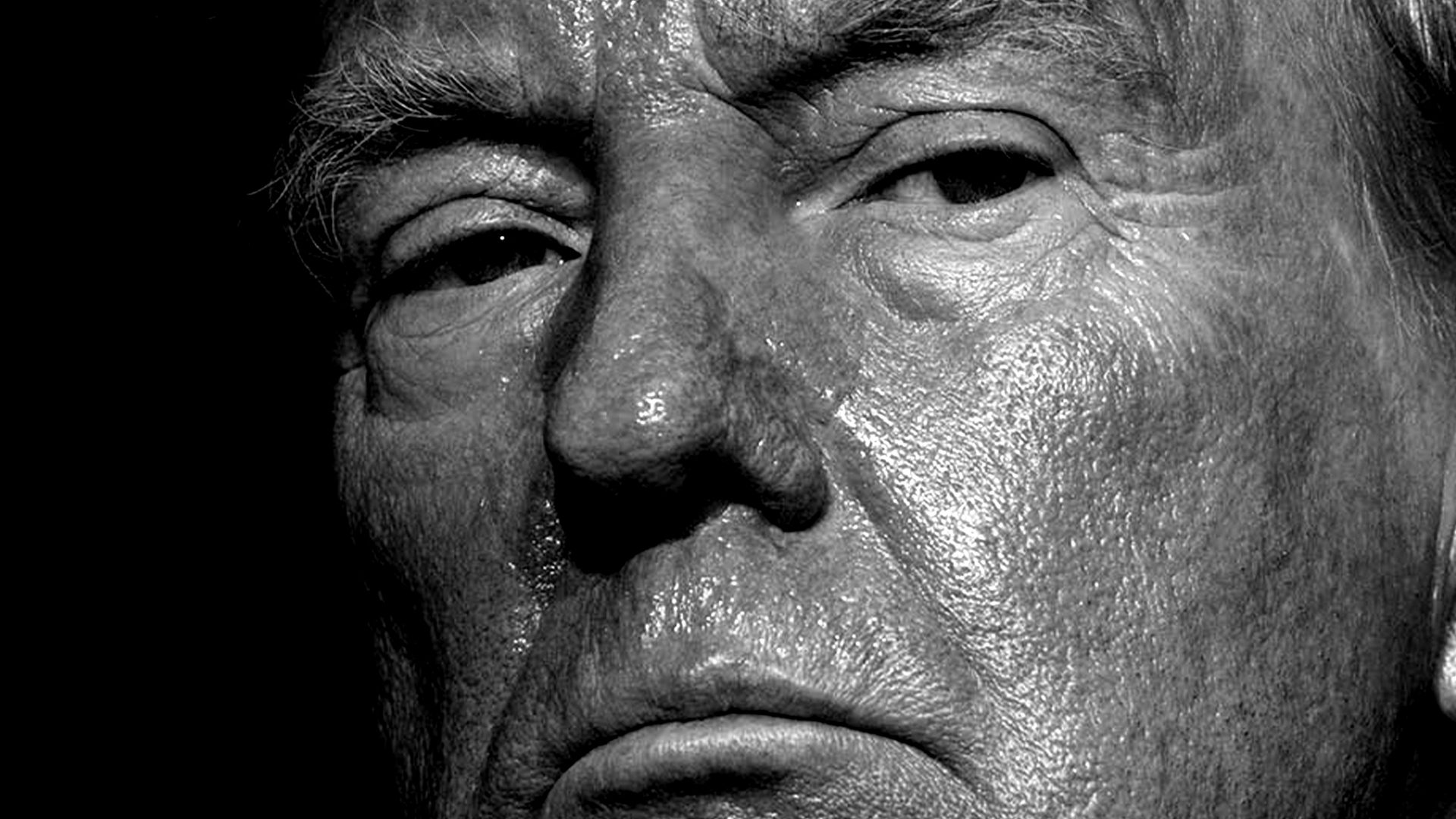After the 2020 election, Europe’s top brass breathed a sigh of relief. Never again, they said, would a wild man in the White House cause so much continental panic. They vowed to spend the four years of relative normality under Joe Biden MAGA-proofing Europe, in case Donald Trump or his kind ever returned to the most powerful job on earth.
And yet, with Trump now back in the Oval Office, officials fear that those years were wasted and that Europe is about to spend a lot of mental and political energy reactively scrambling to address every incoherent utterance the disruptor-in-chief and his allies make.
“Politically and institutionally they seem to have been four lost years,” says a veteran EU diplomat. “We are no more self-sufficient, no more self-reliant and no more resilient than in 2021.”
Experts agree. Anand Menon, professor of European Politics at King’s College London, says: “The time to prepare for this was the last time Trump was in office.”
The risk posed by Trump this time around, most agree, is even greater than after his 2016 victory. Back then, his victory was a shock. He lost the popular vote and had a lot of internal opposition among Democrats and Republicans.
People didn’t want to work for him and were fearful of what his agenda might mean for both America and the world. Now, Trump is the Republican establishment and appears to have both the media and big tech on his side.
Meanwhile, in Europe, the politics of unity has fractured considerably since 2016. In some respects, Brexit was something that covered the cracks in the EU. For all the internal tensions about immigration, economics, the transition to green energy and a notable political shift to the right, Brexit was something the EU 27 could agree upon – namely making it very painful for Britain.
There is nothing comparable this time to distract from four years that will be dominated by an overtly geopolitical Trump administration that has a hostile view of the EU and few qualms about interfering in European politics – if the actions of Elon Musk lately are anything to go by.
Trump unchained combined with a divided Europe is something multiple officials and diplomats in Brussels named as the number one concern for the next four years.
“[We are] more prepared than last time, but he has maybe even less boundaries as well. I think the EU might act united to a certain extent but not all are on board as well,” said a European Council official. Those not “onboard”, as the official put it, include the heads of European governments in Hungary, Italy, Slovakia, as well as members of governments across the bloc more generally, who are fans of Trump and his brand of populism.
The three obvious areas that Trump is expected to come at Europe with a sledgehammer are: defence spending, trade and the regulation of technology.
Defence
Trump has already laid down a gauntlet of sorts on defence for Europe: spend more. At a press conference earlier this year he floated the idea that all NATO allies – 30 out of 32 of which are European – increase their defence spending to 5% of national GDP. The current guideline is 2%.
This would be extremely difficult and largely pointless for a number of reasons. Chiefly, it would mean countries racing to spend cash to reach an arbitrary target and in doing so spending that money badly. In short, more money spent on defence wouldn’t necessarily mean Europe is any more secure.
However, Trump’s threats may not be empty, which means these arbitrary targets might need to be taken seriously at some point. And even if Trump’s logic is flawed, Europe has got into this mess itself by underspending on defence for so long. Part of the reason it hurts officials in Brussels so much when Trump talks about European allies taking advantage of America’s largesse is that he actually has a point.
According to NATO’s own website: “The combined wealth of the non-US Allies, measured in GDP, is almost equal to that of the United States. However, non-US Allies together spend less than half of what the United States spends on defence.”
While Europeans have gradually increased their own defence spending and launched various EU initiatives to bolster security, you’d be hard-pressed to find anyone in Brussels who thinks Europe is anywhere near being able to protect itself without America.
This all means that, whether it’s a good idea or not, Europe has little alternative but to dance to Trump’s tune. As one European diplomat explained: “We still don’t act like a global geopolitical player and quite frankly I fear we’re not able to do so. Certainly not in the next four years.”
Trade
It’s no secret that Trump thinks Europe, especially the European Union, has spent decades “ripping off” the US. In 2018, he went so far as to say: “We love the countries of the European Union. But the European Union, of course, was set up to take advantage of the United States.”
“Under the next Trump administration, the tone of trade policy will certainly be much harsher,” says David McAllister, chair of the European Parliament’s foreign affairs committee. “In terms of content, Mr Trump’s biggest threat is a flat tariff on all imports of ten or even 20 percent. Something like that would hit Germany particularly hard.”
If Trump does decide to impose these extreme tariffs, he holds some advantages over Europe. “The European Union is not agile or flexible institutionally so punching back would take time and is quite hard,” says a European trade advisor. “When you compare that to the executive power of a US President, a trade war could get very difficult for Brussels very fast.”
However, since the first Trump term, Brussels has set up mechanisms to deal with economic coercion which means that, if the political will exists, Europe is better placed to retaliate this time around.
The EU also has an advantage over individual countries of a single market that American companies want access to, which would make it harder for Trump to push around.
That said, the underlying economics don’t currently favour Europe. Growth has been sluggish across the bloc for years and the German powerhouse is not as impressive as it once was. When you compare that to the juggernaut that is the US, whose economy is uniquely resilient – though not immune – to external factors, the US would still have the upper hand in any trade war.
This, McAllister says, is why Europe’s focus will first and foremost be on avoiding any such conflict by reiterating that partnership is preferable to both sides, especially at a time of global instability.
“Europe remains important for the US because the Americans cannot cope with global political upheavals alone. The EU has signalled that it will do everything it can to proactively explore the overlaps in interests and transatlantic cooperation opportunities,” he says.
Tech
It’s not just Elon Musk, the richest person on the planet and owner of X and Tesla, who has been taking an active interest in European politics lately.
Mark Zuckerberg, the owner of Facebook and Instagram’s parent company Meta, released a video earlier this month saying that his company would be getting rid of fact-checkers because of their apparent political bias. He said that Meta would roll back restrictions on gender and immigration because they are “out of touch with mainstream discourse.”
Zuckerberg said that Meta would “work with President Trump to push back on governments around the world that are going after American companies. He singled out the EU, saying: “Europe has an ever-increasing number of laws institutionalising censorship and making it difficult to build anything innovative.”
Meanwhile, Amazon has paid $40m to make a documentary about Trump’s wife, Melania. The Washington Post, which is owned by Amazon boss Jeff Bezos, has come under criticism for allegations of treating Trump with kid gloves, famously pulling an endorsement of Kamala Harris shortly before the election.
That’s three of the biggest tech bosses on earth working directly with Trump World and seemingly willing to push his agenda.
What might this mean for Europe? Officials fear that the combination of political animosity toward the bloc from the White House and these billionaires could lead to even greater American influence on the global regulation of technology. In a best-case scenario, that could mean downgrading online safety or the responsible development of AI.
In a worst-case scenario, it could mean open season for foreign interference in European politics at a time Musk and others are spreading dangerous misinformation about some politicians’ roles in rape gangs and endorsing far-right parties.
In theory, Europe has mechanisms to combat any pressure it might come under from the US administration. But as European politics shifts further to the right, EU leaders who see themselves as ideologically aligned with Trump could put the brakes on pushing back, especially if they see this fact-free, bonfire of regulations might ultimately grant them electoral success and more power.



